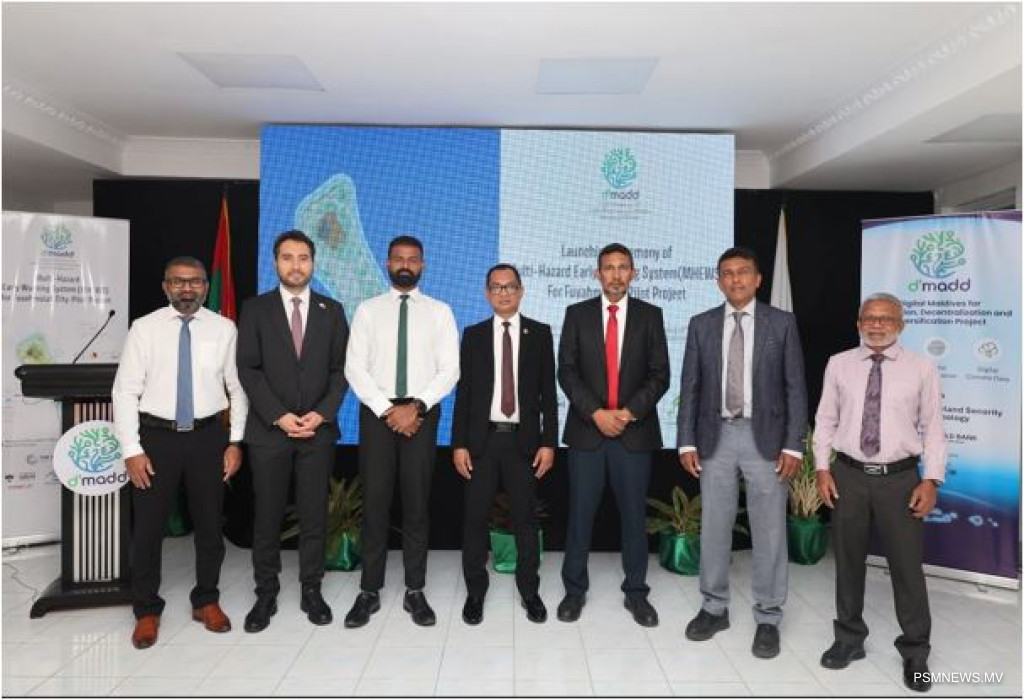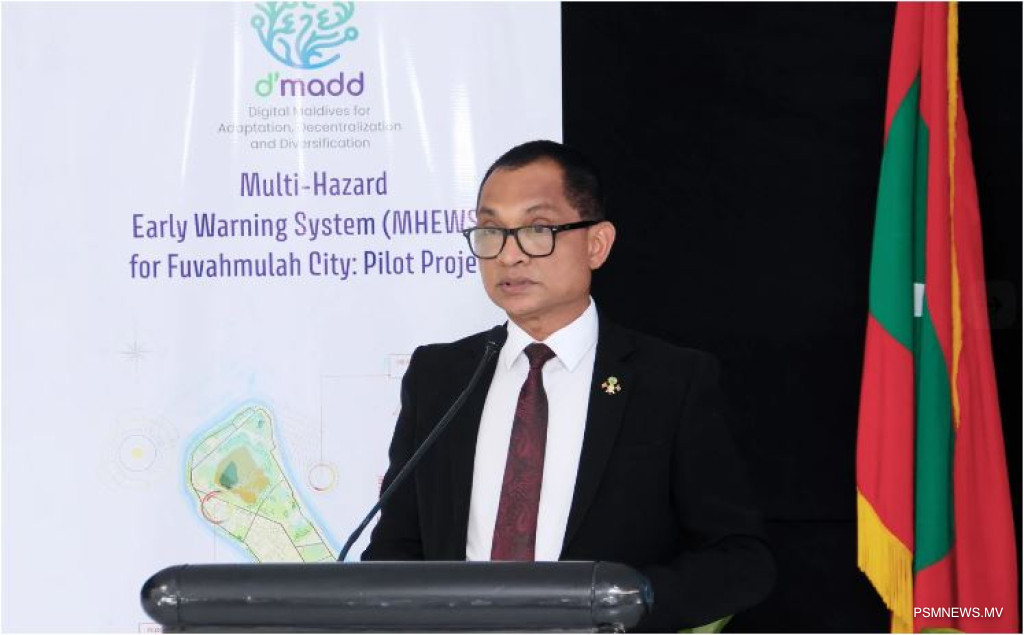
Efforts are underway to establish a Multi-Hazard Early Warning System in Fuvahmulah City.
The initiative, led by the government through the World Bank-funded Digital Maldives for Adaptation, Decentralisation, and Diversification Project (D’MADD) and implemented by the Ministry of Homeland Security and Technology, aims to strengthen preparedness for climate-related disasters and minimise their impact.
The inauguration ceremony was attended by the State Minister of Homeland Security and Technology, Dr Mohamed Kinaanath. Speaking at the ceremony, Dr Kinaanath said the Multi-Hazard Early Warning System project will support the President's commitment to advancing research and monitoring climate change with the help of new technology, in line with the Maldives 2.0 vision and its digital transformation agenda.
"The success of this system lies in all our hands. This can be achieved by strengthening the cooperation between agencies, enhanced training to build staff capacity, and active community engagement. Our shared goal should be to make the system as effective as possible. The system will help to reduce the risk of disasters to our fragile environment, and save and protect society,” the State Minister said.
Noting that the system is still a pilot system, Dr Kinaanath said the system is designed to be scaled up and fully implemented. This is a national disaster preparedness plan, he said, adding that the plan is designed to include decentralisation, digital tools, and inclusive participation.
"Island nations like ours are vulnerable to natural disasters due to climate change. Climate change has caused sea level rise, erosion and sea swells. Such disasters affect various aspects of our daily lives. The Multi-Hazard Early Warning System is being developed in collaboration with the University of Salford in the United Kingdom,” the State Minister said.

As part of the pilot project, a software named Mobilise Platform, developed by the THINKlab at the University of Salford, incorporates Fuvahmulah’s unique geographic features and estimates potential damage to the city based on weather data from satellite and IoT devices. The system will enable the City Council and the Meteorology Office to assess risks in real time and provide early warning messages to the public and take immediate precautionary measures.
The first phase of the pilot project will focus on rapid disaster risk assessments, identifying vulnerable groups and designing island-specific response protocols.
Once the pilot project is completed over two phases, a living lab will be established at the Fuvahmulah City Council. The University of Salford has agreed under the D’MADD project to extend system support for a period of three years even after the project reaches completion.
The inauguration was attended by Fuvahmulah Mayor Ismail Rafeeq, Environmental Regulatory Authority’s Chief Executive Hassaan Mohamed, World Bank’s Country Economist and Resident Coordinator Ardem Ataş, and Professor Terence Fernando of the University of Salford, who delivered a presentation on the system’s features.
